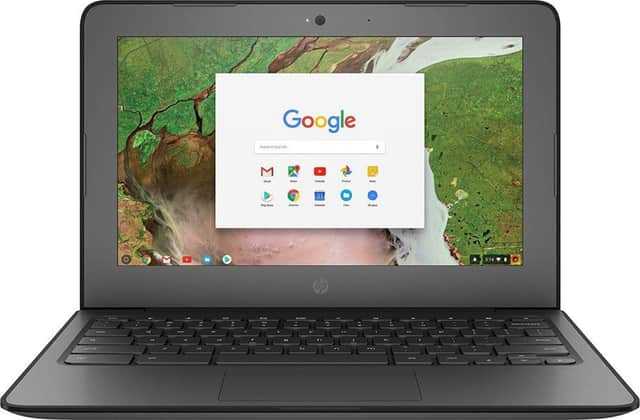Chromebooks and Cloudbooks – what’s the difference?


But that’s no longer the case, and as the price of laptops in particular have been driven ever downward, so has their longevity. Today’s “bargain” machines are often full even before you get them home.
You will see plenty of such devices in the January sales right now – but they may serve you less well than a machine without Windows at all.
Advertisement
Hide AdAdvertisement
Hide AdThe market for cheap, lightweight laptops is currently split between conventional models with Microsoft software and similar-looking devices powered by Google. The reason they don’t weigh much is the absence of a normal hard disk, the part of the computer on which your software and documents are stored. Instead, they use miniature chips known as embedded MultiMediaCards, or eMMCs – which are faster but hold vastly less information.
Chromebooks – the laptops running Google’s Chrome operating system – are ideal for this configuration because they store most data in the cloud and not on your own machine. Windows, on the other hand, is a legacy system that dates from the days before networking, and adheres to the principle that the bigger your hard disk, the better.
Microsoft had slimmed down the system to fit on a 32GB eMMc and the result is the Cloudbook. You might assume that it is therefore similar to a Chromebook, but you’d be wrong. It’s a regular Windows computer, but with around one-thirtieth the storage space of a full-size machine.
A little over £150 will get you a Cloudbook or a Chromebook with an 11-inch screen, small and light enough to carry around with you. So which is best?
Advertisement
Hide AdAdvertisement
Hide AdThe answer, so long as you have a decent internet connection wherever you plan to use it, is a Chromebook. For lightweight computing – browning the internet, sending emails and anything else you do online – there’s really no competition. Chromebooks start up in seconds, not minutes, and are less prone to slowing down over time. And the freedom from having to store your data on the laptop itself means that not only do you fill it up less quickly but you also make it automatically available on your phone and the other PCs you use. It’s a model for the way we work now, not the way we did in the 1990s.
But there are disadvantages, too. You can’t run conventional Windows programs like Excel and Photoshop, so you will have to adjust your working practices to take in online equivalents that run in your browser.
Cloudbooks do run all Windows programs, at least in theory. But their ability to do so is also what slows them down. The installation of Windows itself leaves very little space on those eMMc chips for anything else.
Microsoft doesn’t make its own Cloudbooks – the term is used by manufacturers like Acer, HP and Asus to designate laptops with an eMMc instead of a hard drive. Because the names are so similar, and because the same firms also make Chromebooks, it’s easy to confuse them.
Advertisement
Hide AdAdvertisement
Hide AdBoth varieties tend to be built around the most basic processors, which means that neither is a substitute for a more powerful laptop with either a mechanical hard drive or, better still, the quieter and faster solid state variety known as an SSD. But for casual use, Chromebooks are quicker and more convenient than Cloudbooks. And while the sales last, they’re also bargains.